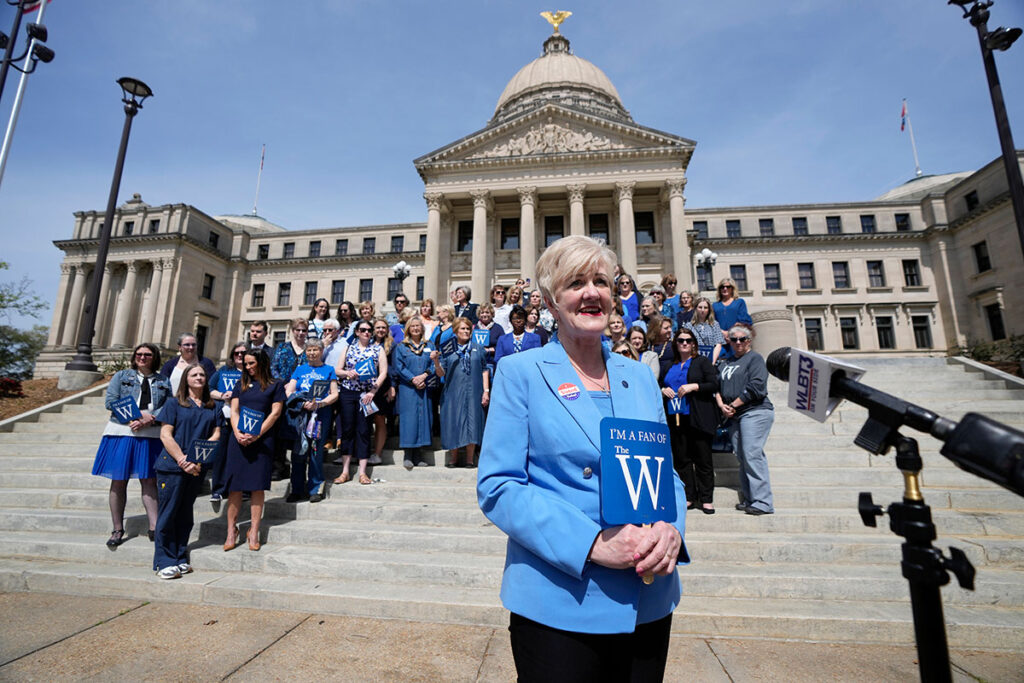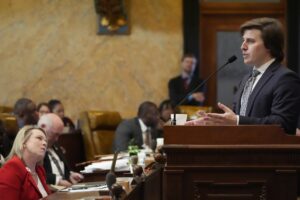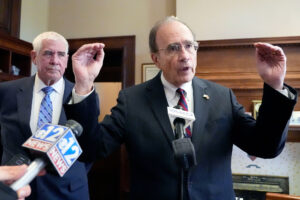Mississippi University for Women will remain its own entity for at least another year after the bill to fold it into Mississippi State University failed. But its future—and that of several other universities—could still be in jeopardy after lawmakers advanced legislation to study the feasibility of continuing to operate eight public universities.
Mississippi Sen. Dennis DeBar, R-Leakesville and the sponsor of the merger bill, asked lawmakers to nix the idea of the merger and instead create a committee to study the feasibility of the university and Mississippi School for Mathematics and Science. MSMS is a residential high school for gifted students that is housed on MUW’s campus. The Senate voted against the amendment effectively killing all parts of the bill.
“The proposed action to merge and rename the university ‘The W at Mississippi State University’ was unexpected, but we are fully committed to ensuring our university’s health and sustainability and its 140-year legacy in the state of Mississippi,” Mississippi University for Women President Nora Miller said in an email to alumni on March 7.
A similar bill that House Universities and Colleges Committee Chairman Representative Donnie Scoggin, R-Ellisville, introduced passed the House and went to the Senate for consideration on Feb. 15. House Bill 939 would create the Mississippi University Research Authority.
That bill moved forward in place of a bill authored by Sen. John Polk, R-Hattiesburg, that would have closed three of Mississippi’s eight public universities by June 30, 2028. Many feared the bill could specifically target the state’s historically Black universities. Although Polk argued that the state could not continue to financially support eight universities, Scoggin said lawmakers need more information before making a decision.
“I am not for closing any of the colleges at this time without having a whole lot more knowledge,” Scoggin told The Associated Press.
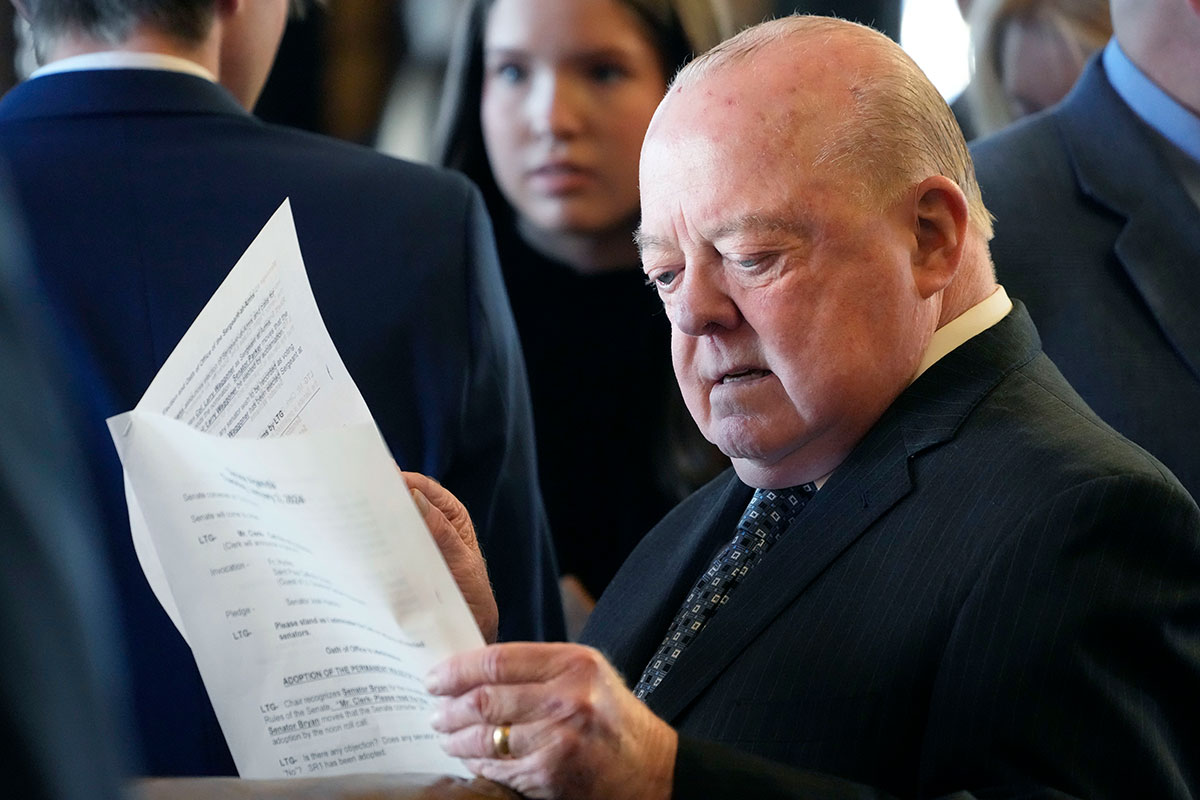
The failed merger bill was the last of a whirlwind of measures surrounding Mississippi University for Women, which many alumni feared would close if Polk’s bill passed. An earlier bill, which never made it out of committee, sought to change the university’s name to Wynbridge State University of Mississippi.
Although efforts to change the school’s name failed, MUW President Nora Miller told the Mississippi Free Press on Feb. 22 that school officials would seek more input and continue the process.
“We’re still at it,” Miller said. “We’re taking a pause but we’re not giving up on it. We’re gonna keep moving forward.”
School Voucher Measure Fails
Efforts to adopt a universal voucher program that would redirect public funds to private schools failed again after the Mississippi Student Freedom Act died on a legislative deadline on March 14. An amended version of the bill would have created a study committee to evaluate the feasibility of universal vouchers “for eligible expenses related to educational services, instruction and needs.”
The original version, introduced by Rep. Rob Roberson, R-Starkville, would have established Magnolia Scholarship Accounts for eligible students. The program was designed to be phased in over five years using public school funds to cover the cost.
Senators also declined to act on a bill that would have amended the current voucher program limited to special-needs students known as the Education School Account program. The proposed amendment would have changed the law to require families to show proof of acceptance into a private school qualified to provide services for a student’s disability. The measure would have also enacted reporting requirements including testing measures.
Student Transfers
Students wishing to transfer to a school outside the district they live in would have more flexibility under a bill the House passed. Currently, both the school district where the student is leaving and the district where they would enroll must agree to a transfer. House Bill 867, which lawmakers passed on March 14, would require each public school district to publicly report its policies regarding approvals and rejections of transfer requests. The bill would also remove the stipulation that both school districts must agree to a child’s transfer.
House Speaker Jason White said during an interview on the Gallo Show on Feb. 21 that a student’s current school should have no say in the transfer and that the per pupil expenditure should follow the student to the new district.
“Another feature of our education package is what we’re calling a portability piece, which says that no public school district school board can hold a student against their will,” White told host Lucien Smith. “If they ask to be released, they should be released.”
Parent’s Campaign Executive Director Nancy Loome told the Mississippi Free Press on Feb. 26 that she sees the legislation as problematic. She pointed to discrepancies in property-tax payments for families whose children are educated in one district but live in another. That could pose problems for school leaders, she said.
“The challenge is that the property tax that (is paid) in Rankin County or Madison County is a little bit more,” Loome said. “So (under this plan), why not move out into another county where there’s a lower tax base and just leave the child there? You’re harming the local municipality because they’re not getting your taxes anymore, but they’ve still got to educate your children. And you’re also harming property values because people are going to move out and not move back in. People move to these communities because of the schools.”
School Funding
Both the Mississippi House and Senate have passed education-funding bills that they say will not only increase education funding but would fully fund the state’s public education system.
The Senate’s education-spending bill would keep the 17-year-old Mississippi Adequate Education Program formula but increase the percentage that local school districts must provide from 27% to 29.5%. Sen. Dennis DeBar authored Senate Bill 2332, which would use a 20-year average to calculate inflation costs. The bill, which passed the Senate unanimously last year, continues the use of an objective funding formula and a hold-harmless provision for districts that would lose money due to a declining average daily attendance.
Senators discussed the likelihood of a stalemate before bringing the bill to the floor.
“The house, from what I recall, did not even entertain our bill for one reason or another,” DeBar said during a Feb. 22 Senate Education Committee meeting. “It was just never to be considered by the house so here we are again to move forward with one more try.”
“Do they have a plan similar to this or are we going to be back where we were last year?” Sen. Brice Wiggins, R-Pascagoula, asked.
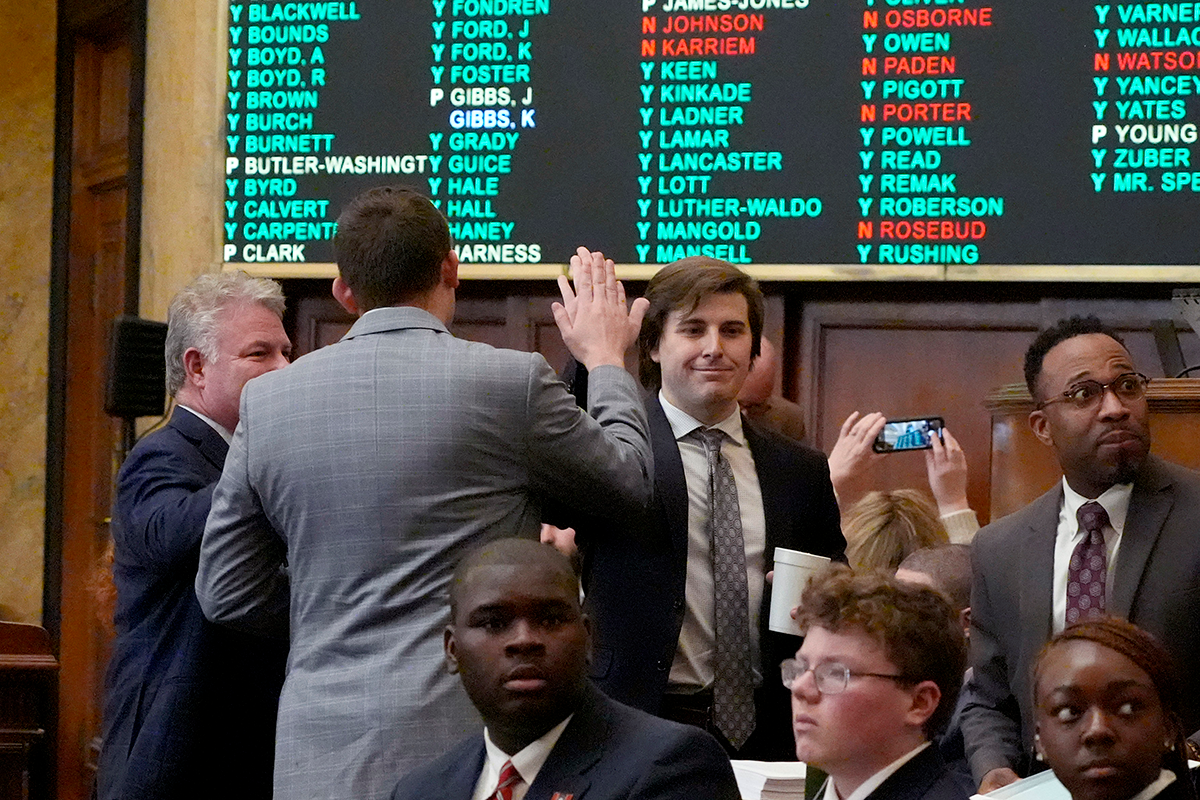
The Mississippi House voted to completely replace MAEP with the Investing in the Needs of Students to Prioritize, Impact and Reform Education Act. The INSPIRE Act would “put more equity in poor districts,” its principal author, Rep. Rob Roberson, told House colleagues earlier this month. The legislation calls for the Legislature to determine each school’s annual financial need, and proponents say most school districts could see increased funding under the plan.
But the Parents’ Campaign has criticized the plan for not including an “objective formula.” Legislators would instead set a base cost and use a percentage of that cost to determine additional funding for category weights such as concentrated poverty, special education, English language learners, gifted learners, and career and technical education.


